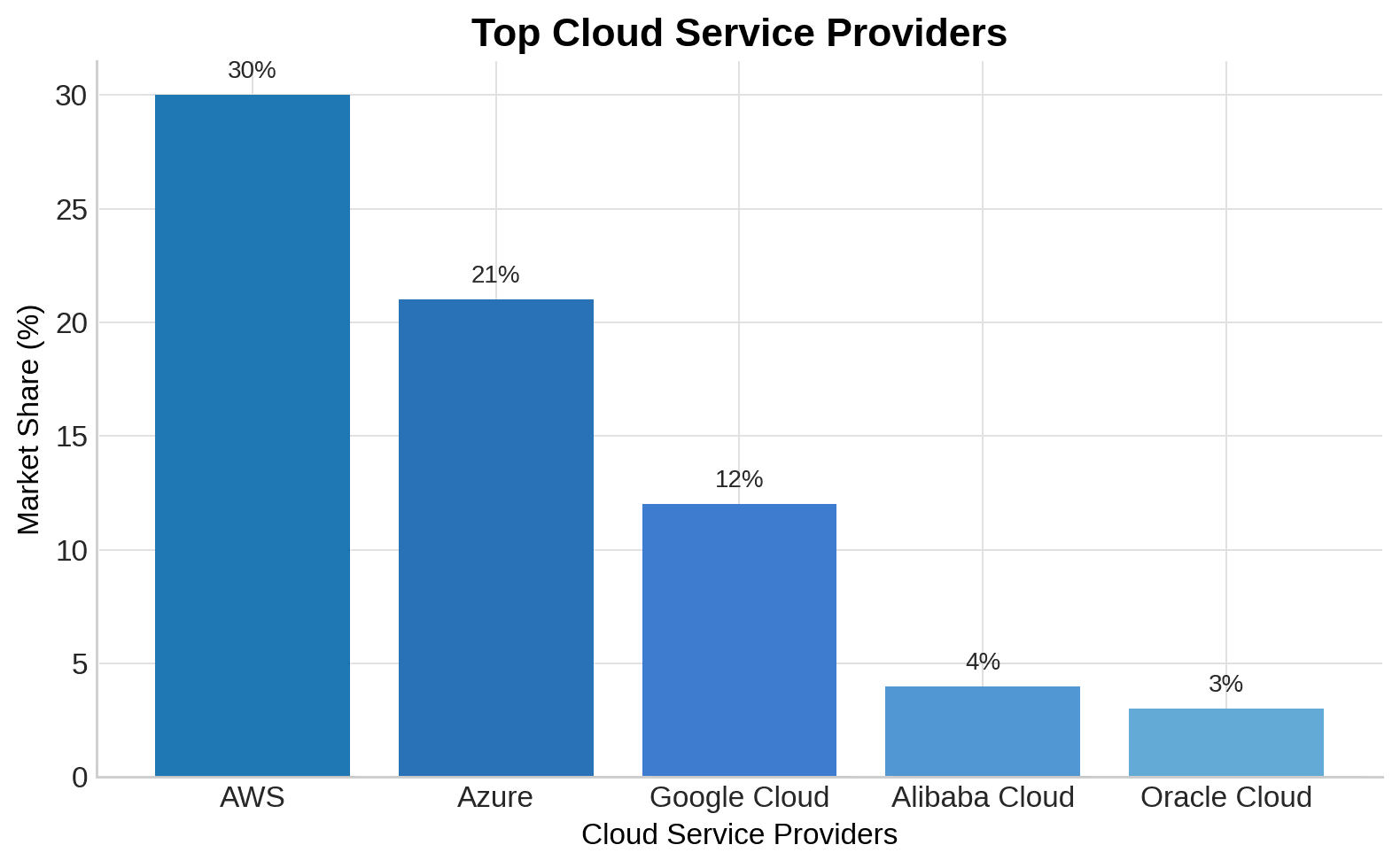If you're thinking about moving or optimizing your business to the cloud, you've probably heard of AWS development services. It's the world's most popular cloud platform, used by startups and enterprises alike. AWS developers are not just programmers; they are cloud-savvy experts who know how to build, deploy, and maintain applications that scale and stay secure.
In this blog, we explain what Amazon Web Services (AWS) development services entail, the role of a developer on this platform, the technologies they use, and how all of this can benefit your business. If you're considering hiring AWS-experienced talent, here's what you need to know.
Learn more about how to hire AWS developers.
What is an AWS Developer, and what services do they offer?
When it comes to Amazon Web Services (AWS) development services, it all starts with understanding who AWS developers are and what they do. These professionals specialize in building, deploying, and maintaining applications on Amazon Web Services (AWS), one of the most robust and versatile cloud platforms available. They don't just write code; they build scalable, secure, and highly available applications that take full advantage of the AWS cloud infrastructure.
AWS is a platform with tools that help companies store data, run machine learning models, and more. AWS developers are experts at using these tools efficiently. As more companies move to the cloud, understanding who is leading this ecosystem is key to making strategic decisions. Here's a visualization of the top five cloud service providers in use today.

Now, let’s break down some of the core technologies AWS developers work with on a daily basis:
- Compute Services: One of the most commonly used is Amazon EC2 (Elastic Compute Cloud). It provides virtual servers — known as instances — that developers can customize and scale as needed. Whether you're building a web app or running large-scale data processing, EC2 is a go-to resource.
- Storage Services: Developers often rely on Amazon S3 (Simple Storage Service) to store all kinds of files, from static website assets to backups. It’s secure, scalable, and designed for quick access to data.
- Database Services: AWS RDS (Relational Database Service) is another key component. It simplifies the process of setting up, operating, and scaling databases like MySQL, PostgreSQL, and Oracle, all while handling routine database maintenance tasks.
- Serverless Computing: One of the most exciting features in AWS is AWS Lambda. This allows developers to run code without worrying about managing servers. It’s perfect for applications that need to respond to events in real time, like uploading a file or clicking a button.
AWS developers are also expected to follow best practices in cloud architecture — from optimizing performance and reducing costs to ensuring data privacy and compliance. Their deep understanding of AWS’s ecosystem means they can make smart decisions about which services to use and when.
Learn more about how to hire cloud infrastructure architects in Latin America.
Types of AWS Development Services
AWS development services aren’t one-size-fits-all — they’re designed to adapt to a variety of business goals and technical needs. Whether you're a startup building your first product or a global enterprise scaling infrastructure across regions, AWS has the flexibility to meet you where you are. Here’s a breakdown of the main service categories AWS developers typically work with:
Application Hosting: At its core, AWS offers a rock-solid foundation for hosting everything from simple websites to enterprise-grade applications. Services like Amazon EC2 and AWS Elastic Beanstalk allow developers to deploy apps quickly, configure resources based on real-time traffic, and ensure high availability. Hosting on AWS also means you can easily scale up during peak usage times — like a product launch or holiday season — and scale back down to save costs when demand drops.
Machine Learning and AI Development: For companies exploring artificial intelligence or machine learning, AWS offers cutting-edge tools to experiment and scale. Amazon SageMaker, for instance, provides a complete environment to build, train, and deploy ML models without managing infrastructure. It supports popular frameworks like TensorFlow, PyTorch, and Scikit-learn, making it accessible for both data scientists and developers. From chatbots and image recognition to predictive analytics, AWS makes it feasible to integrate AI into real-world applications.
Microservices and Containerization: AWS is also a top choice for building microservices-based architectures. With services like Amazon ECS (Elastic Container Service), EKS (Elastic Kubernetes Service), and AWS Fargate, developers can containerize applications, isolate components, and deploy them independently.
Serverless Application Development: With AWS Lambda, developers can write functions that run only when triggered — no need to manage or provision servers. This is ideal for apps that require fast response times with minimal overhead, like real-time file processing, webhooks, or APIs. Serverless also pairs well with other AWS services, allowing developers to stitch together scalable backend systems with minimal infrastructure.
Data and Analytics: From data lakes to business intelligence dashboards, AWS supports data-driven decision-making. Tools like Amazon Redshift, AWS Glue, and QuickSight help collect, transform, analyze, and visualize data at scale. For organizations managing large volumes of information or investing in analytics, these services are invaluable.

Benefits of AWS Development Services
One of the biggest reasons companies — from early-stage startups to global corporations — turn to AWS development services is the sheer number of benefits it brings to the table. It’s not just about moving to the cloud; it’s about doing more with less, faster, and smarter. Let’s break down the key advantages and why they really matter.
Scalability: Need to handle thousands of users one day and scale back the next? No problem. AWS lets you scale your infrastructure automatically based on usage. Whether you're launching a new product or handling unpredictable traffic spikes (think Black Friday or viral campaigns), services like Auto Scaling and Elastic Load Balancing make sure your app doesn’t crash under pressure — and that you’re only paying for the resources you actually use.
Cost-Effectiveness: One of the standout features of AWS is its pay-as-you-go model. There’s no need for massive upfront investments in servers or hardware. You only pay for what you use — when you use it. This is especially valuable for startups or small teams looking to optimize their budget while still getting access to top-tier cloud infrastructure.
Global Reach: With data centers in regions across the world, AWS makes it easy to deploy applications globally with just a few clicks. That means better performance for your users — no matter where they are — and compliance with local data regulations. It’s perfect for businesses scaling internationally or those with remote teams and global customers.
Built-In Innovation Tools: Another often-overlooked benefit is AWS’s constant innovation. New services and features are rolled out regularly, giving you access to emerging tech like generative AI, Internet of Things (IoT), edge computing, and more — all without changing your core infrastructure. Your tech grows with the platform.
Want to hire? read more about hiring Latin American developers.
How AWS Developers Contribute to Business Growth
AWS developers aren’t just technical support — they’re strategic partners in your company’s growth. One of their superpowers is the ability to innovate quickly and effectively. Whether it's building a new customer-facing app, integrating machine learning for smarter decision-making, or automating internal processes, AWS developers bring fresh, scalable solutions to the table. Their deep understanding of AWS tools allows them to craft custom architectures that align perfectly with business goals. By staying on top of emerging cloud technologies, they ensure your company is always ready to meet evolving market demands — without being tied down by legacy systems.
They also have a big impact on speed and performance. By leveraging automation tools and following DevOps practices, AWS developers help accelerate the entire development lifecycle — from concept to deployment. That means shorter time-to-market, quicker iteration, and faster response to customer feedback. On top of that, they optimize applications to run more efficiently, reducing latency and downtime, which translates to a better user experience and higher customer satisfaction. In short, hiring skilled AWS developers isn’t just about keeping your systems running — it’s about driving real, measurable business value.
FAQ
What is AWS in development?
AWS is a comprehensive cloud computing platform that provides developers with a wide range of tools and services to build, deploy, and manage applications in the cloud. It enables businesses to scale quickly, reduce infrastructure costs, and maintain high levels of security and reliability.
What are the four foundational services in AWS?
The four foundational services in AWS are Amazon EC2, which offers resizable compute capacity; Amazon S3, a scalable storage service for storing and retrieving any amount of data; Amazon DynamoDB, a fully managed NoSQL database known for high performance; and Amazon Route 53, which is a scalable and highly available Domain Name System (DNS) web service.
What are the 3 types of cloud services AWS has?
AWS offers three main types of cloud services. The first is Infrastructure as a Service (IaaS), which provides virtualized computing resources like storage and networking. The second is Platform as a Service (PaaS), which delivers a framework for developers to build upon, offering tools and libraries. The third is Software as a Service (SaaS), which offers applications over the internet on a subscription model, removing the need for local installation.
Which AWS service is used for machine learning?
Amazon SageMaker is the primary AWS service used for machine learning. It allows developers and data scientists to build, train, and deploy machine learning models quickly. SageMaker supports the entire ML lifecycle and integrates seamlessly with other AWS services, making it easier to implement AI solutions at scale.
Conclusion
AWS development services offer businesses a powerful way to scale operations, enhance performance, and innovate faster than ever. With a vast range of tools at their disposal, AWS developers are equipped to design and deploy customized solutions that meet the unique needs of any business. From improving application performance to automating workflows and integrating cutting-edge technologies like machine learning, the impact of AWS developers on business growth is undeniable.
To help you make the best decision, use the calculator below to estimate your costs and potential savings. For more details and personalized advice, please contact us.







